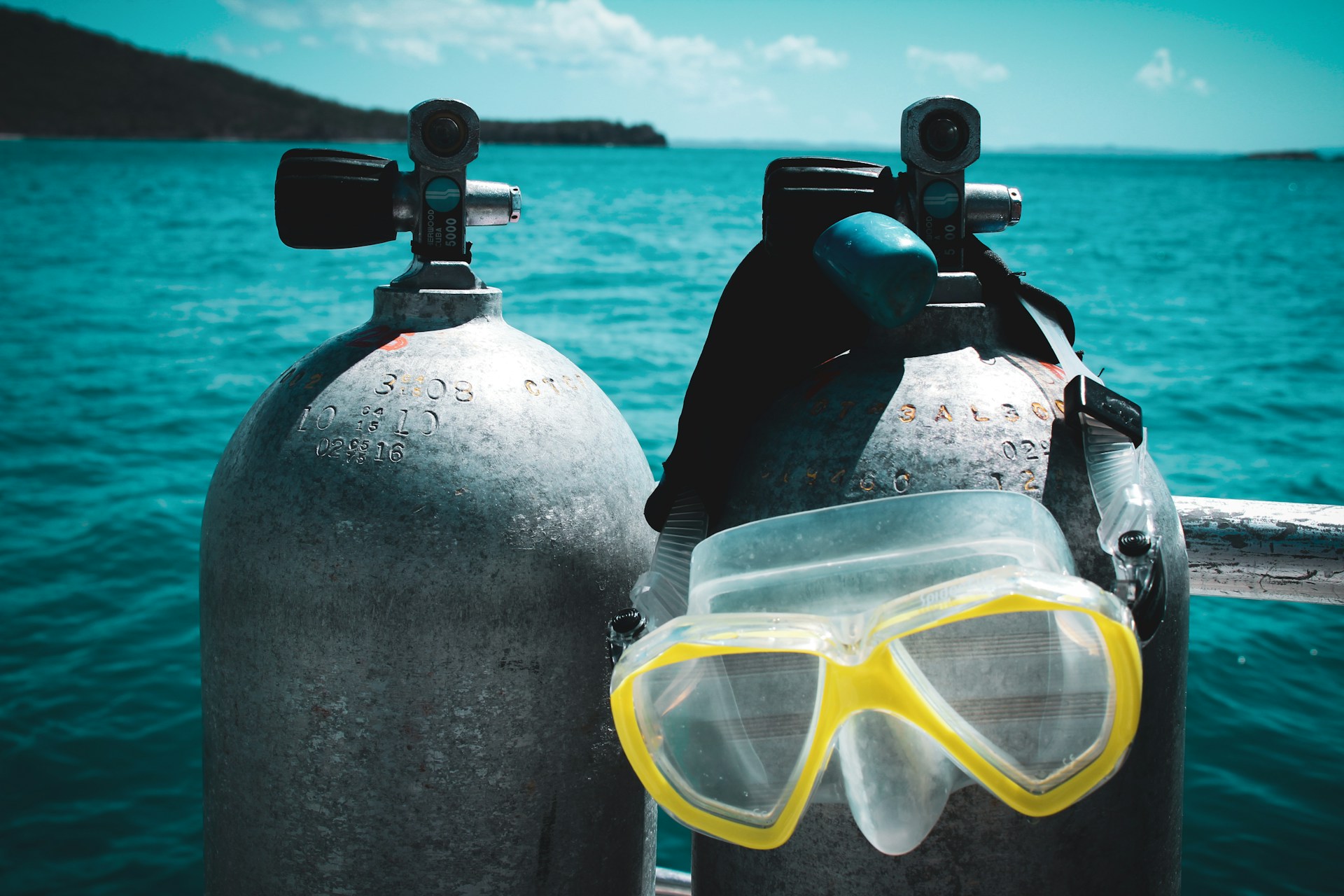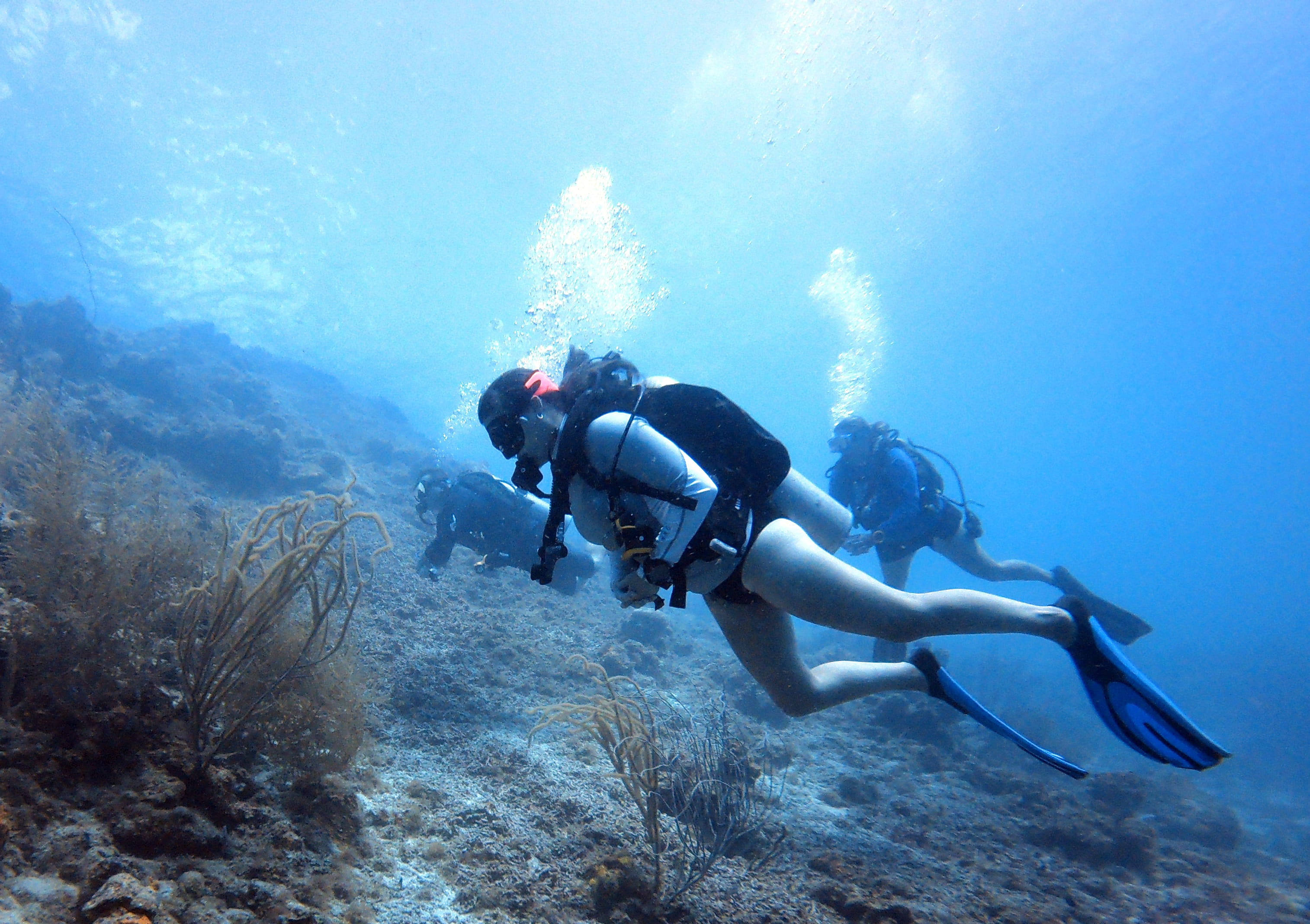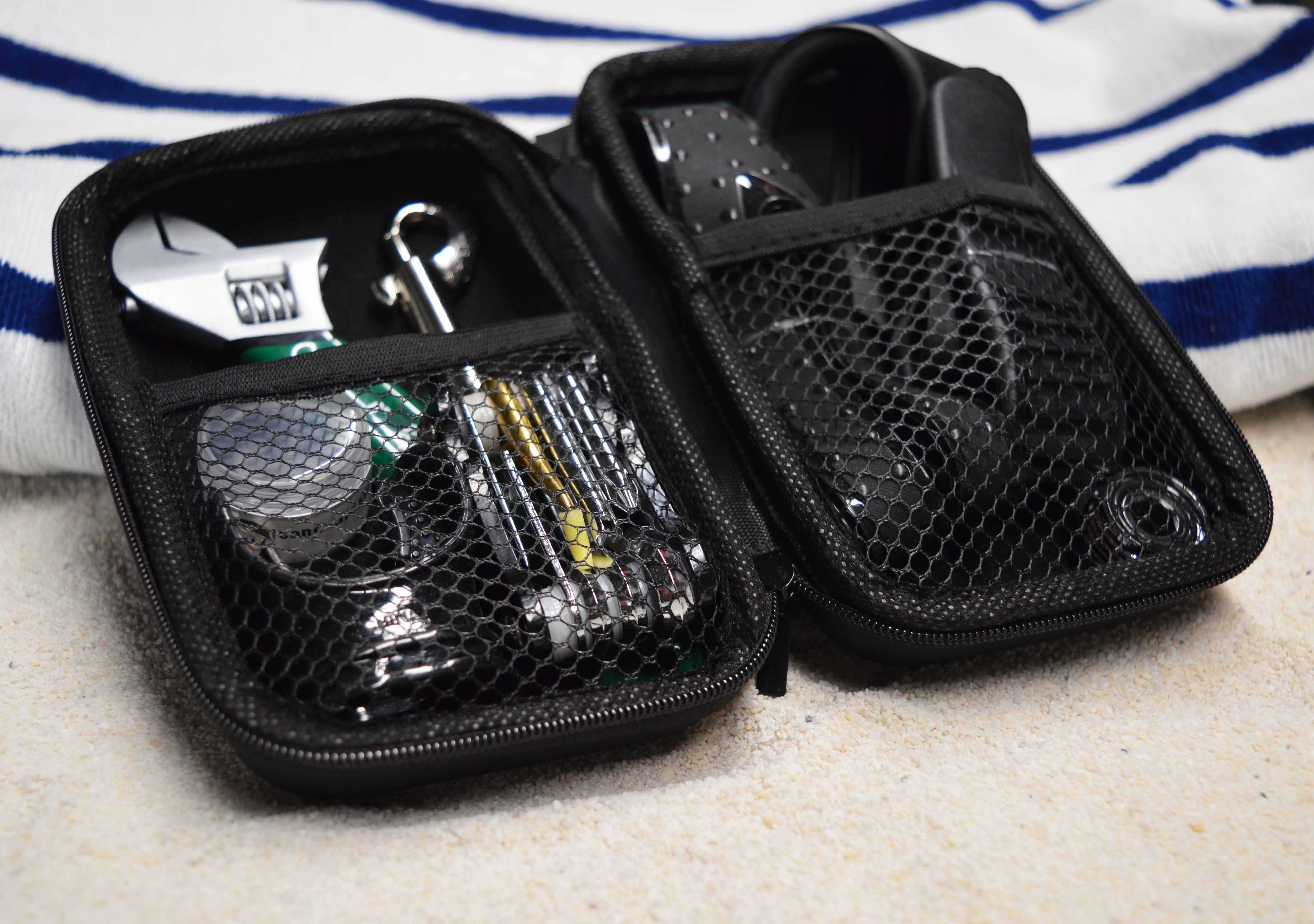5 Ways to Use Less Air While Scuba Diving
TheScubaDirectory ⋅ November 9, 2024

1. Focus on Breathing Slowly and Deeply
One of the best ways to conserve air while scuba diving is to focus on slow, deep breaths. Shallow, rapid breathing uses more air and increases your heart rate, making you consume oxygen faster. Try to develop a calm rhythm, inhaling deeply and exhaling slowly to regulate your air consumption.
2. Improve Your Buoyancy Control
Good buoyancy control is key to using less air underwater. By staying neutrally buoyant, you can avoid unnecessary movements that require more energy and more oxygen. Practice proper buoyancy techniques and make small adjustments to your BCD (Buoyancy Control Device) to reduce drag and stay streamlined.
3. Stay Relaxed and Move Slowly
Stay calm and move slowly while underwater. Excessive movement causes your body to burn more oxygen. Keep your movements smooth and deliberate, using your fins efficiently to glide through the water without creating drag. This will not only help conserve air but also allow you to enjoy your dive more.
4. Streamline Your Gear
A streamlined profile reduces drag and helps you move more efficiently underwater. Secure loose hoses and equipment to your body, minimizing resistance and unnecessary movements. Reducing drag will help you conserve energy and, ultimately, use less air.
Essential Gear
Dive smarter with PRO

Explore PRO
5. Practice Efficient Finning Techniques
Efficient finning techniques are crucial for reducing air consumption. Use slow, powerful kicks from your hips rather than rapid kicks from your knees. Frog kicks and flutter kicks are both effective methods to conserve energy and use air more efficiently while scuba diving.
By following these tips, you’ll not only use less air but also enjoy longer, more relaxed dives. Practice regularly to improve your technique and extend your bottom time on future dives!

